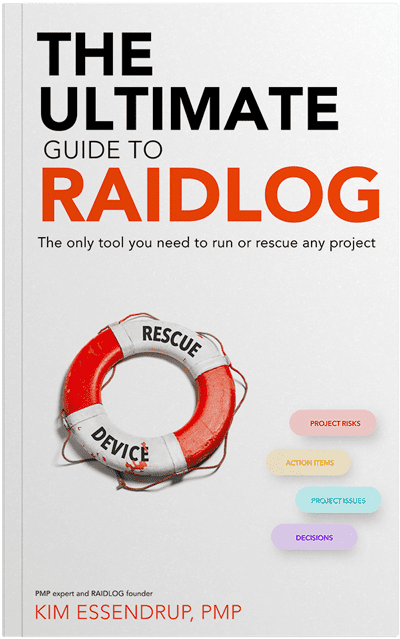The Decisions we track in a RAID log represent key “forks on the road” for our project. They include all the decisions that we can plan for through the lifecycle of our project (including Workers Council approval, in some cases), and ad-hoc decisions that can come up during the course of our projects.
Decisions can be about the project deliverables, about the activities required to produce the deliverables, or they can be about how your team works on a daily basis. Some typical examples include:
- Scope Elaboration – adding detail to the nature of the deliverables
- Plan Elaboration – adding detail to the process and activities needed to create the project’s deliverables
- Resources – determining which resources and suppliers will be engaged
- Risk Management – deciding on response strategies and contingencies for project risk
- Issue Management – deciding how to handle issues when they come up
- Stage Gates – deciding whether or to proceed to the next stage of the project and, if so, if the project’s plans should be changed.
Good decision making is not just about getting a decision made. As described in our case study, good decision making must involve all the appropriate stakeholders – whether that involvement is approval of the decision, or simply consultation and communication.
